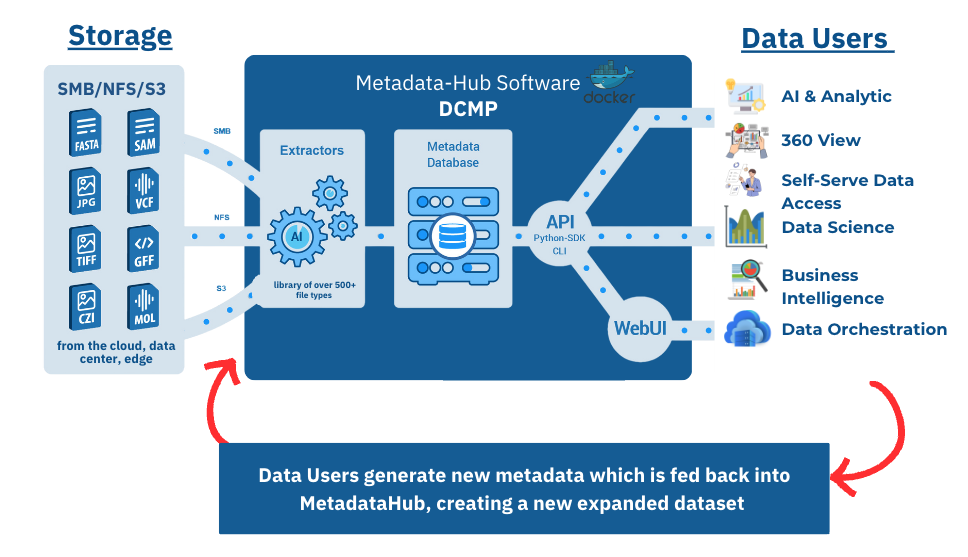MetadataHub revolutionizes how organizations handle unstructured data by transforming it into usable, actionable information. It extracts, processes, and harmonizes metadata from diverse file types across on-premise and cloud storage sources, enabling faster and more informed decision-making.
MetadataHub uses advanced harvesters to extract metadata, including embedded metadata, from hundreds of unique file types stored in systems like SMB, NFS, and S3. Its specialized extractors:

MetadataHub uses advanced harvesters to extract metadata, including embedded metadata, from hundreds of unique file types stored in systems like SMB, NFS, and S3. Its specialized extractors:

MetadataHub seamlessly integrates with external systems, provisioning metadata to:
This integration accelerates data preparation, analysis, and enables automated workflows, ensuring faster delivery of insights to downstream applications.
Deployed as a Docker container, MetadataHub connects to NFS, CIFS, and S3 with read-only permissions. It allows for:
MetadataHub amplifies HSM and data orchestration systems, bringing a new level of intelligence and granularity to policy-making by making these solutions content and context-aware. This enhancement supports:
MetadataHub integrates with third-party reporting tools or uses its native graphic reporting features to provide a complete view of the organization’s data landscape. This allows users to:
MetadataHub is built for large-scale data operations, allowing organizations to:
The Metadata Advisor is an intuitive, AI-powered feature within MetadataHub designed to help users navigate and leverage metadata across various domains. As a chat-based lexicon, Metadata Advisor allows users to ask questions and engage in discussions about metadata tags, ranges, and usage. It provides explanations, advice, and contextual insights, enabling users to better understand and apply metadata for their specific needs.
The Metadata Advisor enhances the use of metadata within MetadataHub, maximizing the value of unstructured data across specialized domains. Researchers and professionals can interact with the Advisor to gain deeper insights into how to use and understand metadata tags. It serves as an essential tool for: